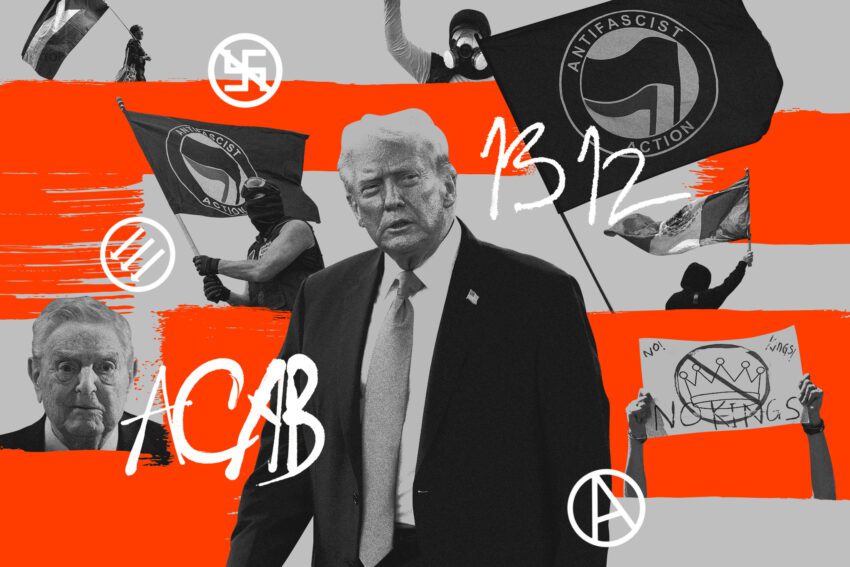
everything is terrorism in trump s america The Trump administration’s recent declaration of war against the so-called “terrorist organization” known as “antifa” has sparked significant debate and concern regarding the implications of labeling dissent as terrorism.
everything is terrorism in trump s america
Understanding Antifa and Its Context
Antifa, short for anti-fascism, is not a formal organization but rather a loosely affiliated movement of individuals who oppose fascism and far-right ideologies. The term has gained notoriety in recent years, particularly during protests against racial injustice and police brutality. While some view antifa as a necessary response to rising extremism, others perceive it as a threat to national security.
The Trump administration’s characterization of antifa as a domestic terrorist organization raises questions about the broader implications of such a designation. By framing dissenting voices as terrorism, the government risks stifling legitimate political discourse and dissent. This move is particularly concerning in a democratic society where free speech and the right to protest are fundamental rights.
The Executive Order
In a recent executive order, President Donald Trump sought to classify antifa as a domestic terrorist organization. This designation, however, lacks a clear legal framework. The term “domestic terrorism” is not explicitly defined in U.S. law, making it difficult to apply such a label consistently. The executive order appears to be more of a political maneuver than a legally sound action.
Trump’s order follows a series of protests that erupted across the country in response to the killing of George Floyd, an unarmed Black man, by a police officer in Minneapolis. These protests often included a diverse array of participants, ranging from peaceful demonstrators to individuals engaging in vandalism and violence. The administration’s focus on antifa seems to divert attention from the underlying issues of systemic racism and police brutality that sparked these protests in the first place.
Political Implications
The decision to label antifa as a terrorist organization serves multiple political purposes. First, it allows the Trump administration to rally its base by portraying itself as tough on crime and extremism. By framing antifa as a significant threat, the administration can justify a more aggressive law enforcement response to protests and dissent.
Moreover, this move can be seen as an attempt to delegitimize the broader anti-racist movement. By focusing on a fringe element, the administration can undermine the legitimate grievances of millions of Americans who are calling for racial justice and police reform. This tactic of conflating peaceful protest with violence is not new; it has been employed throughout history to suppress dissent.
Public Reaction and Stakeholder Responses
The public reaction to the executive order has been mixed. Supporters of the administration applaud the move as a necessary step to combat violence and chaos in the streets. They argue that antifa’s tactics, including property destruction and physical confrontations with far-right groups, warrant a strong response from the government.
Conversely, critics argue that labeling antifa as a terrorist organization is an overreach that threatens civil liberties. Civil rights organizations, including the American Civil Liberties Union (ACLU), have condemned the executive order, asserting that it could lead to increased surveillance and repression of dissenting voices. The ACLU has emphasized that the right to protest is protected under the First Amendment, and any attempt to label dissent as terrorism undermines this fundamental right.
Historical Context
This recent development is not an isolated incident but rather part of a broader trend in which governments around the world have sought to suppress dissent by labeling it as terrorism. Historically, authoritarian regimes have used similar tactics to silence opposition and maintain control. By framing dissent as a threat to national security, these governments justify repressive measures that curtail individual freedoms.
In the United States, the post-9/11 era saw a significant expansion of government surveillance and law enforcement powers under the guise of combating terrorism. The Patriot Act, enacted in response to the September 11 attacks, granted law enforcement agencies broad authority to monitor individuals and groups suspected of terrorism. This has led to concerns about the erosion of civil liberties and the targeting of marginalized communities.
The Broader Implications of Labeling Dissent
The implications of labeling antifa as a terrorist organization extend beyond the immediate political landscape. Such a designation can have a chilling effect on free speech and dissent, as individuals may fear repercussions for expressing their views or participating in protests. This fear can stifle important conversations about systemic racism, police violence, and social justice.
Furthermore, the conflation of dissent with terrorism can lead to increased polarization within society. When individuals are labeled as terrorists for opposing certain ideologies, it creates an environment where dialogue and understanding become increasingly difficult. This polarization can further entrench divisions within society, making it harder to address the root causes of unrest and dissatisfaction.
Impacts on Law Enforcement and Civil Liberties
The executive order could also have significant implications for law enforcement practices. By designating antifa as a terrorist organization, law enforcement agencies may feel empowered to adopt more aggressive tactics in their response to protests. This could lead to increased surveillance, arrests, and the use of force against individuals participating in peaceful demonstrations.
Moreover, the potential for abuse of power is a significant concern. History has shown that labeling individuals or groups as terrorists can lead to disproportionate responses and violations of civil liberties. The targeting of activists, journalists, and community organizers under the guise of combating terrorism raises serious ethical and legal questions.
Conclusion
The Trump administration’s decision to label antifa as a domestic terrorist organization is a complex and multifaceted issue that raises significant concerns about civil liberties, free speech, and the nature of dissent in America. While the administration may seek to portray this move as a necessary response to violence, it risks undermining the very principles of democracy that allow for open discourse and protest.
As the nation grapples with deep-seated issues of racism and inequality, it is crucial to ensure that dissenting voices are not silenced or labeled as threats. The implications of this executive order extend far beyond antifa; they touch on fundamental questions about the nature of democracy, the right to protest, and the importance of protecting civil liberties for all citizens.
Source: Original report
Was this helpful?
Last Modified: October 2, 2025 at 8:38 pm
1 views















